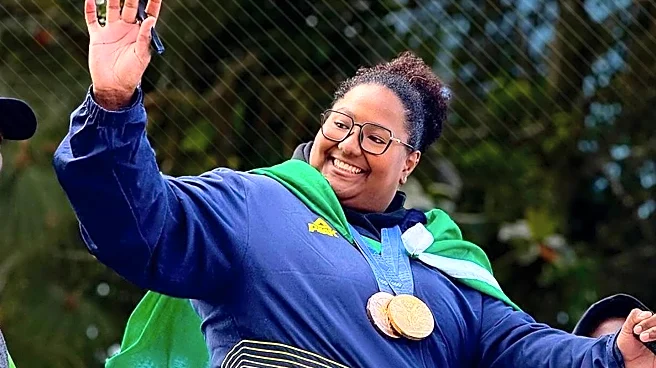What's Happening?
Florida State University (FSU) has announced the establishment of a First Amendment legal clinic, which will be led by Denise Harle, a state Supreme Court finalist and attorney with a background in constitutional law. The clinic, set to officially launch in January 2026, aims to provide pro bono legal representation for First Amendment cases across the United States. Harle, who has a history of involvement in Florida politics and constitutional law, will guide law students in gaining hands-on litigation experience. The clinic will focus on defending rights related to free speech, religious liberty, freedom of association and assembly, and freedom of the press. Students will engage in real-world legal practice, including client interviews, drafting briefs, and court appearances, under the supervision of faculty and attorneys.
Why It's Important?
The establishment of the First Amendment clinic at FSU is significant as it addresses the growing national focus on constitutional freedoms, particularly free speech. By providing pro bono legal services, the clinic not only supports individuals and organizations whose rights are at risk but also prepares the next generation of lawyers to advocate for these fundamental rights. This initiative could influence public policy and legal practices by equipping students with practical skills and fostering a deeper understanding of constitutional law. The clinic's work may also impact broader societal discussions on free speech and related issues, potentially shaping future legal and legislative landscapes.
What's Next?
As the clinic prepares for its official launch, it is already building a docket of critical cases and planning public programming to extend its impact beyond the courtroom. This includes hosting nationally recognized speakers, symposia, and panel discussions on significant free speech cases. The clinic will also engage with local and statewide initiatives, prioritizing cases involving Floridians while remaining open to national cases. The involvement of guest lecturers and co-counsel relationships with outside firms will further enhance the students' learning experience and the clinic's reach.
Beyond the Headlines
The clinic's focus on advocacy and monitoring legislative developments highlights the intersection of law and policy in protecting constitutional freedoms. By training students to understand these dynamics, the clinic not only contributes to legal education but also to the broader civic and legislative landscape. This approach underscores the importance of defending constitutional rights not just in courtrooms but also in public discourse and policy-making processes.










